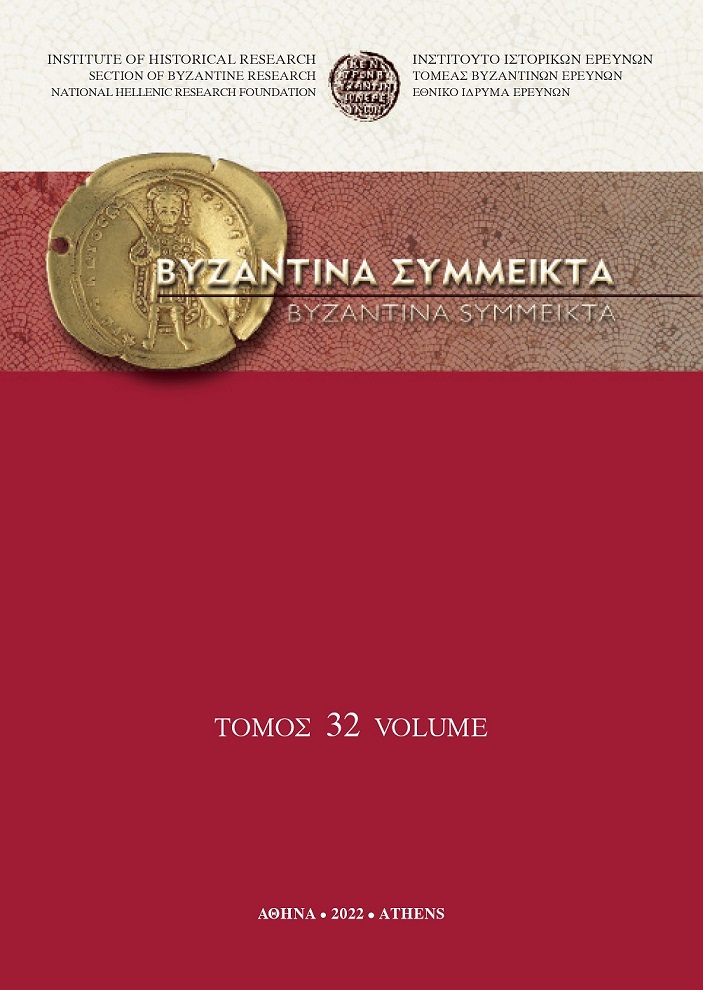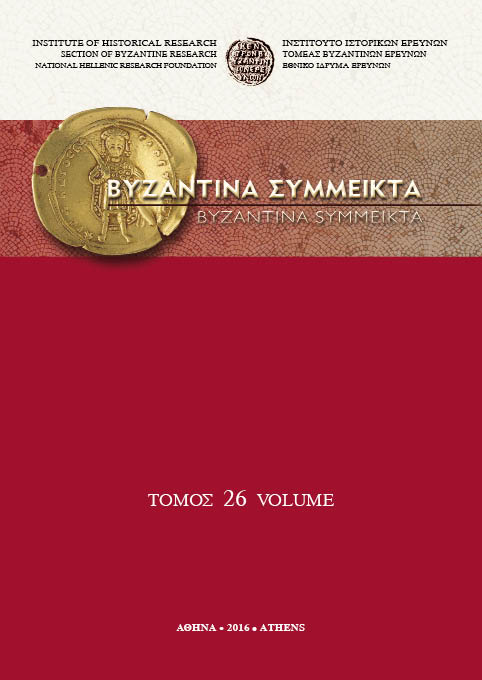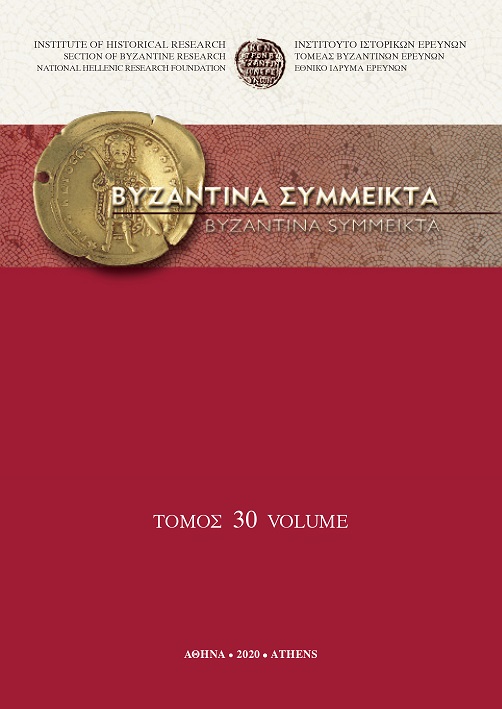Ὁ χριστιανικὸς συμβολισμὸς τοῦ φυσικοῦ κόσμου στὴν θεολογικὴ γραμματεία τοῦ Βυζαντίου (μὲ ἔμφαση στὴν ὑμνογραφία)

Abstract
The present study concerns the symbolism of the natural world in Βyzantine
religious literature and mainly in hymnography. The symbolism of the
beings of the natural world in an agricultural society, such as Byzantium,
originates from the direct observation of Nature. This leads to a “Christian
symbolism of Nature”: all natural beings are interpreted symbolically and
teachings about human behaviour are drawn from them.
Article Details
- How to Cite
-
ΧΡΟΝΗ Μ. (2022). Ὁ χριστιανικὸς συμβολισμὸς τοῦ φυσικοῦ κόσμου στὴν θεολογικὴ γραμματεία τοῦ Βυζαντίου (μὲ ἔμφαση στὴν ὑμνογραφία). Byzantina Symmeikta, 32, 321–367. https://doi.org/10.12681/byzsym.30409
- Issue
- ΒΥΖΑΝΤΙΝΑ SΥΜΜΕΙΚΤΑ 32
- Section
- Articles

This work is licensed under a Creative Commons Attribution-NonCommercial-ShareAlike 4.0 International License.
Copyright: The copyright for articles in this journal is retained by the author(s), with first publication rights granted to the journal. By virtue of their appearance in this open access journal, articles are free to use (with the exception of the non-granted right to make derivative works) with proper attribution for non-commercial uses (licence Creative Commons 4.0). NHRF retains the worldwide right to reproduce, display, distribute, and use articles published in BYZANTINA SYMMEIKTA in all formats and media, either separately or as part of collective works for the full term of copyright. This includes but is not limited to the right to publish articles in an issue of the Journal, copy and distribute individual reprints of the articles, authorize reproduction of articles in their entirety in another NHRF publication, and authorize reproduction and distribution of articles or abstracts thereof by means of computerized retrieval systems.





